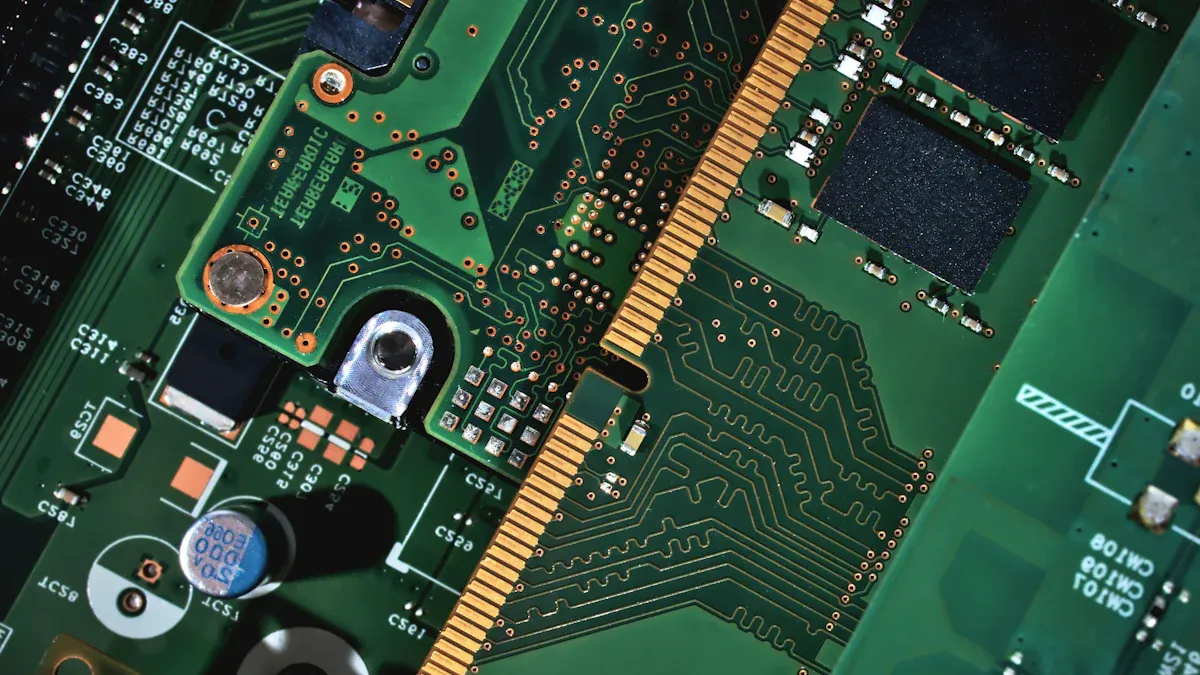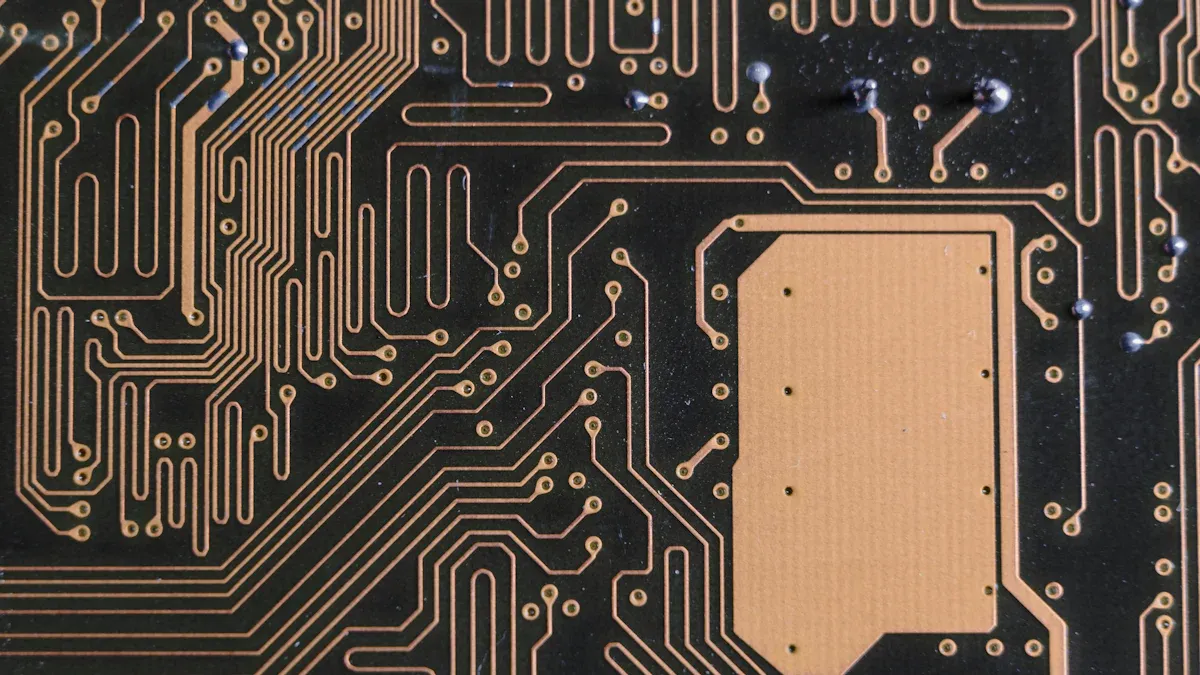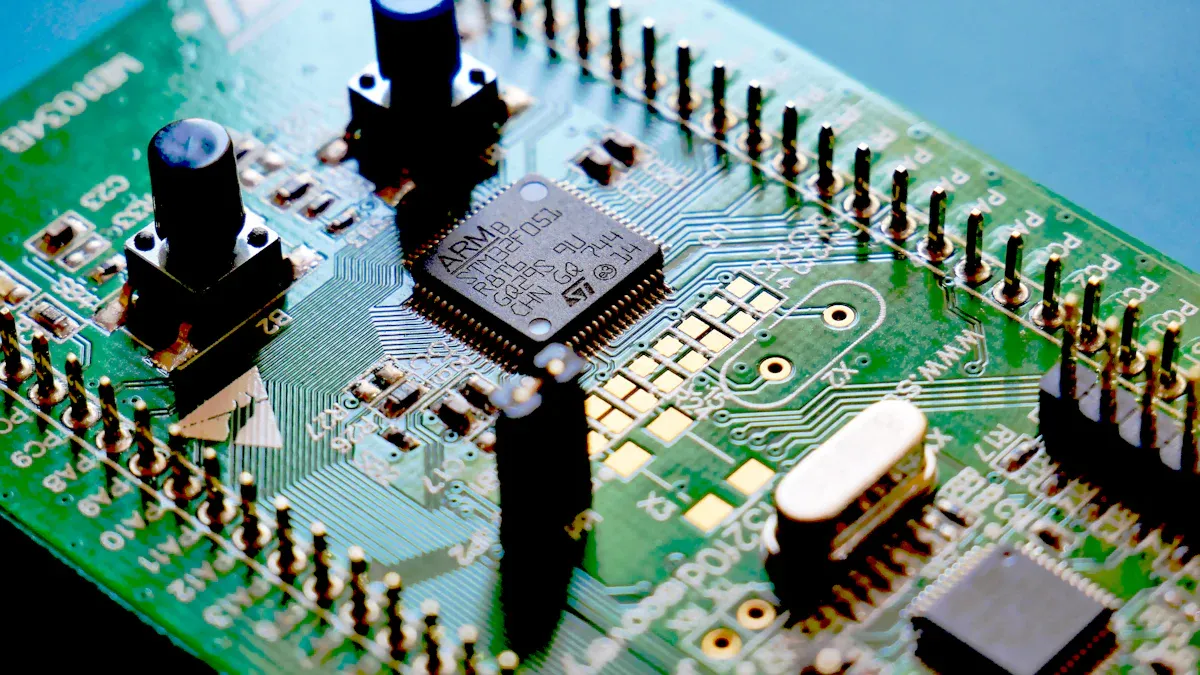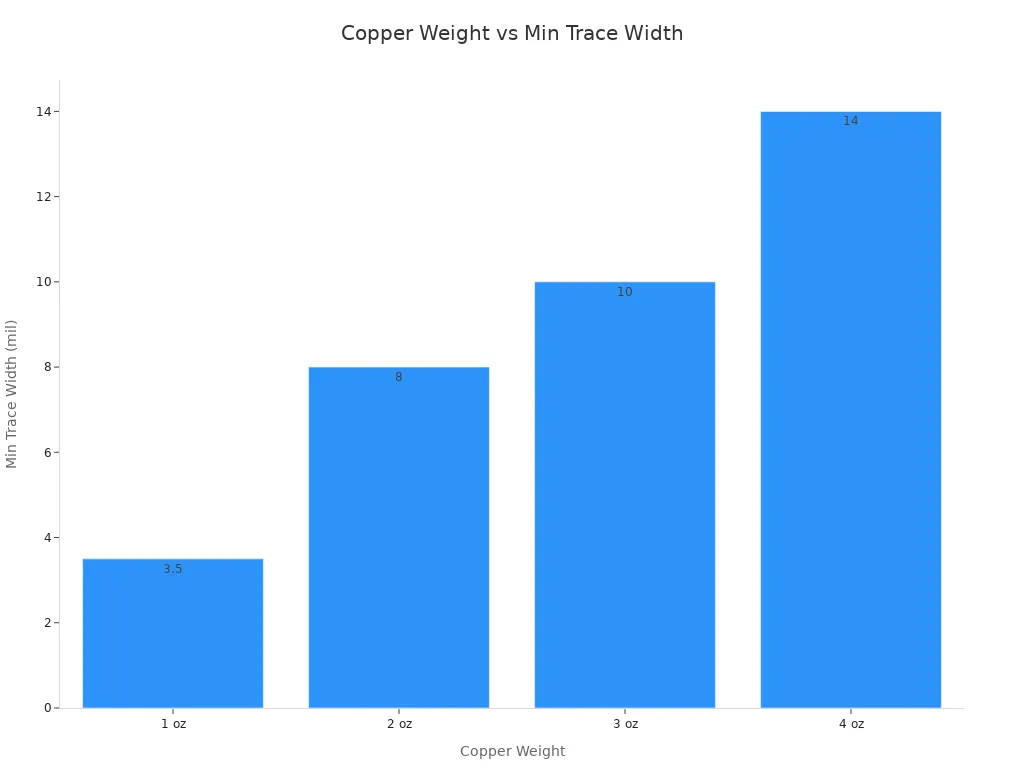close
Choose Your Site
Global
Social Media
Views: 0 Author: Site Editor Publish Time: 2025-09-18 Origin: Site

A pcb board lets you join electronic parts in things like phones and watches. Today’s gadgets are smaller and smarter because a pcb helps fit more things in less space.
Many new boards let more parts work together, so you get longer battery life and better performance.
You see these in medical tools, cars, and home electronics, where saving space is important.
A PCB board links electronic parts together. This helps devices like phones and watches work well. High-quality PCBs make devices safer and work better. They guide electricity and stop problems from happening. There are different types of PCBs, like single-sided and multi-layer. Each type is used for different things in electronics. Picking the right PCB type helps devices last longer and work better. You should choose PCBs that follow safety rules like ISO9001 and RoHS. This makes sure they work safely and reliably.

You use a pcb board every time you turn on your phone, play music, or switch on a lamp. A pcb board, also called a printed circuit board, connects electronic parts so they work together. You find these boards inside almost every modern device. The board holds and links parts like chips, resistors, and connectors. This makes your device run smoothly and safely.
A pcb board does more than just hold parts. It directs the flow of electricity, making sure signals travel where they need to go. You get better performance and longer life from your devices because of this careful design.
PCBs help keep devices safe and reliable.
They guide electrons so your device works as it should.
High-quality boards prevent problems that could cause safety risks, especially in medical tools.
Many companies work together to check each pcb for quality, so you can trust your device.
Xinrongxing stands out as a top manufacturer of pcb boards. You benefit from their strict quality control and advanced testing equipment. Xinrongxing supplies boards to big brands like Huawei and Xiaomi. You get products that meet international safety and environmental standards.
You might wonder what makes up a circuit board. Each pcb has several layers, and each layer has a special job. Here is a simple table to show you the main layers and what they do:
Layer | Description | Function |
|---|---|---|
Substrate | Made from strong materials like fiberglass or flexible plastics. | Gives the board its shape and keeps it stable when hot or cold. |
Copper Layer | Thin sheets of copper pressed onto the substrate. | Carries electrical signals between parts, acting as the board’s highways. |
Solder Mask | A green or colored coating over the copper. | Protects the copper, stops rust, and keeps parts from sticking together by accident. |
Silkscreen Layer | Printed words and symbols on top of the board. | Helps you see where each part goes and makes repairs easier. |
You see these layers in every pcb, whether it is in a simple toy or a complex computer. Xinrongxing uses advanced tools like optical detectors and X-ray machines to check each layer. You get boards that follow strict rules, such as ISO9001 and RoHS, so your devices stay safe and last longer.

A pcb board has many parts that help it work. Each part has a job to keep your board safe and strong. Xinrongxing uses good materials and follows strict rules to make every board. They make single-sided, double-sided, aluminum, keyboard, and multi-layer pcb boards.
The substrate is the base of your pcb. It keeps the board strong, even when it gets hot. Most boards use FR-4 because it is strong and keeps electricity inside. Some boards use polyimide to bend or ceramic for lots of power. Here is a table with common materials:
Material | Description | Applications |
|---|---|---|
FR-4 | Glass-reinforced epoxy laminate, excellent electrical insulation and strength | General use, cost-effective |
Polyimide | Superior thermal stability, flexible, high-performance applications | Aerospace, automotive, high-performance computing |
PTFE | Excellent dielectric properties, stability at high frequencies | RF and microwave applications |
Ceramic | Low dielectric loss, good thermal conductivity | High-frequency, high-power applications |
Metal Core PCBs | Efficient heat dissipation, typically aluminum or copper | LED lighting, high-power electronics |
PCBs can have one layer or many layers. More layers let you add more circuits and parts. This makes your board work better and stops signals from mixing. Xinrongxing makes all these types, so you get the board you need.
Copper traces are like roads for electricity. They connect all the parts on your board. Signals move fast and safe on these traces. The size of the traces is important. Bigger traces carry more power and help keep the board cool. Here is a chart that shows how copper weight changes trace size:

Xinrongxing uses special tools to check every trace. This makes sure your board works well, even when it is used a lot.
You see many parts on a pcb, like chips, resistors, and connectors. These parts are very important for your device. Phones use boards with many layers for hard circuits. Home items like microwaves use simple boards. Good parts help your device work better and last longer. Xinrongxing always picks the best parts for every board.
Tip: If your board gets too hot, the parts can break faster. Keeping it cool helps your device last longer.
The solder mask covers the copper traces and keeps your board safe. It stops the copper from rusting and keeps out dust and water. The solder mask also stops short circuits by keeping solder in the right spot. This layer helps your board work well every day.
Xinrongxing uses strong solder masks and checks every board. They follow rules like ISO9001 and RoHS. You get a board you can trust in any place.
Electricity travels through a pcb in a neat way. The printed circuit board acts like a map for energy. It guides power from one part to another. Here is how it works:
Engineers first design the circuit. They plan where each part will go. They also decide how the tracks will connect.
You put the components on the board in their spots. This step sets the board’s size and shape.
Wires and tracks link all the parts. These links let your device send power and data where needed.
You can add more layers for harder designs. Multilayer boards use special paths to keep signals strong.
Xinrongxing uses smart tools to make sure each pcb is safe. Their team checks every board for good connections. They also check for smooth signal flow. You get devices that work well every time.
Tip: When electricity flows well, your device works faster and lasts longer.
Signal routing controls how information moves on the board. You want signals to travel fast and without problems. Xinrongxing uses clever design tricks to help with this:
Vias optimization cuts down on problems and keeps signals strong.
Microvias help keep signals clear by lowering unwanted effects.
Ground planes give signals a steady path and lower noise.
Modern pcb boards use special ways to route signals:
Route differential pairs together to keep signals even.
Use parallel routing for equal spacing and steady signals.
Microstrip and stripline routing protect signals from outside noise.
Keep signal traces short to stop distortion.
Make trace widths even for steady flow.
Avoid sharp corners to stop signal bounce.
Use special layers for fast signals.
Multilayer boards let you fit more tracks in less space. Blind and buried vias save space and help signals stay strong. Power and ground planes give steady power and reference points. Xinrongxing uses these ways to build boards for phones and computers.
Good signal routing helps your device do fast jobs. You get less signal loss and better results. Xinrongxing’s boards meet what modern electronics need by using these tricks.
A pcb board does three main things in a circuit:
It holds all the parts in place.
It connects the parts so they work together.
It spreads power and signals across the device.
You count on the board to keep everything working right. Xinrongxing checks each board to make sure it is reliable. Their process includes careful checks and on-time delivery. You get the same good results every time.
Supplier Name | On-Time Delivery | Review Score | Reorder Rate |
|---|---|---|---|
Dongguan Xinrongxing | Perfect | N/A | N/A |
You find Xinrongxing’s boards in many devices, like home and office electronics. Their focus on quality means your device stays safe and works well.
Single-sided PCBs are used in simple devices. These boards have copper on one side only. They are good for basic circuits and cost less. You can make them easily. Xinrongxing makes single-sided boards that are safe and high quality.
Characteristics | Applications |
|---|---|
Simple design | Used in calculators and remotes |
Low price | Used in LED lighting |
Easy to build | Used in relay controls |
Good for simple circuits | Used in low-power adapters |
Xinrongxing uses strong materials like FR-4 and CEM-1. You can pick the thickness and finish you want. Their boards follow ISO9001, UL, and RoHS rules. You always get boards you can trust.
Feature | Xinrongxing's Offering | Industry Standards |
|---|---|---|
Board Materials | FR-4, CEM-1, FR-1 | Popular choices |
Thickness Range | 0.4 mm to 3.2 mm | Depends on use |
Copper Layer Thickness | 1 oz to 2 oz, can change | Usual thicknesses |
Certifications | ISO9001, UL, RoHS, IPC-A-600 | Common certifications |
Price | Good deals | Prices change |
Double-sided PCBs are for harder circuits. These boards have copper on both sides. You can fit more parts in less space. This helps you make devices with more features.
You can add more parts and features.
You can make harder circuits.
Signals move better and faster.
Boards last longer and are stronger.
Xinrongxing makes double-sided boards for many uses:
Used in car dashboards and switches.
Used in factory controls and power boxes.
Used in medical tools for checking health.
Used in routers and phone stations.
Multi-layer PCBs are for the most advanced devices. These boards have three or more layers stacked up. You get more room for circuits and better results.
New designs let you fit lots of circuits in small spaces.
Special materials help signals move better.
Laser tools make each layer just right.
Careful checks make sure boards are safe.
Multi-layer boards help you:
Fit more circuits in small devices like phones.
Make signals move faster and clearer.
Spread power better with special layers.
Designers can keep digital and analog signals apart. They use holes for better paths. These boards last longer. Multi-layer PCBs also help signals move quickly, which is great for data centers and 5G.
You see these PCB types in many things you use. Xinrongxing’s boards power strong power supplies and sound systems. You also find them in home and office electronics. Big brands like Huawei, ZTE, Xiaomi, and TCL use Xinrongxing’s boards. You get boards that help your devices work well and last longer.
Tip: Picking the right PCB type helps your device work better and stay safe.
You have learned that a pcb is very important in every electronic device. This board links all the circuits so your gadgets work well and stay safe. When picking a pcb, look for good heat control, strong signals, and smart design.
A good board uses the best materials and passes tests for heat, water, and rust.
Xinrongxing gives you a pcb that meets top rules, so your circuit stays safe anywhere.
A strong board helps your device last longer and work better.
A pcb connects all the electronic parts in your device. It lets electricity flow between them. You get a device that works safely and does its job well.
You see many layers in a pcb when your device needs more circuits. More layers help fit extra parts in a small space. This makes your device faster and smarter.
You can check if a pcb meets standards like ISO9001 or RoHS. High-quality boards use strong materials and pass many tests. Trusted brands like Xinrongxing always follow these rules.
You cannot use the same pcb for every device. Each pcb has a special design for its job. You need a board that matches your device’s needs.
If a pcb breaks, your device may stop working. You might see errors or lose power. You should replace the damaged board to fix your device.